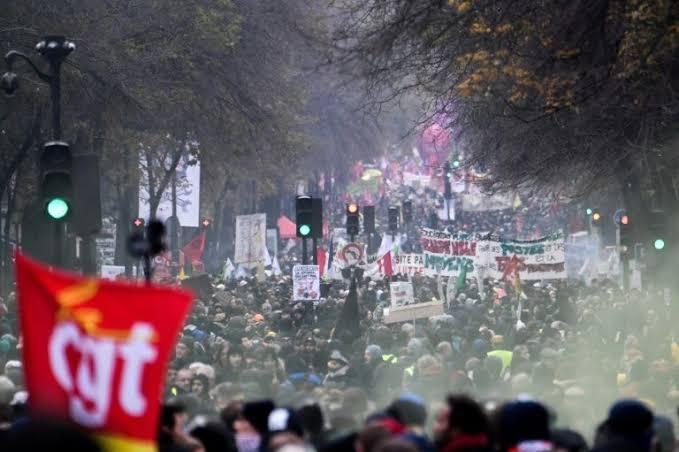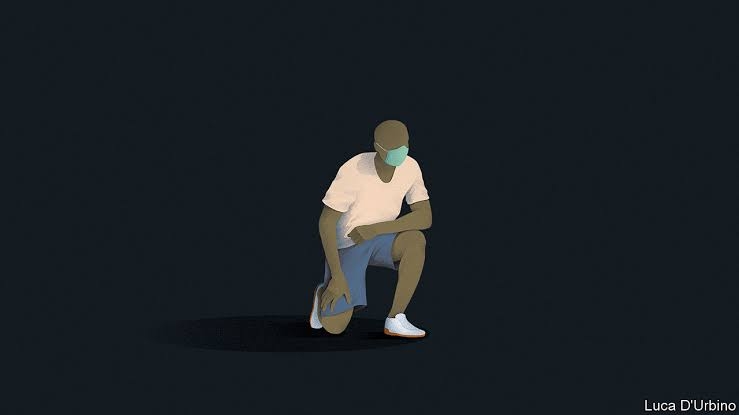Onwuchekwa Jemie's article titled “Revolution? Forget it!” (The Guardian, Sunday, February 15) makes interesting reading. In it, Jemie tries to highlight the illusion of expecting a revolution in Nigeria. There cannot be a revolution in this generation or in the next 50 years because, in Jemie’s words: “Not enough Nigerians are eating out of dustbins… Not enough Nigerians are dying from bad medicine, bad water, bad road or armed robbers…” what is more, as far as our rulers “Keep things pretty much as they are … there are not likely ever to be a revolution in Nigeria,” so concludes Jemie.
This analysis no doubt sounds convincing, at least from a cursory look of it. Doesn't it?
True, no revolution can take place when the objective material conditions to engender it are not ripe enough. In agreement with Jemie, the material and objective conditions of the majority of the people must be such that they “would just soon die fighting than continue to live as they are” for any revolution to take place.
However, this is not enough.
The people must also start to subjectively view their objective condition as caused by a few who have almost all conceivable material things only because they (the people) are denied those things.
For Jemie to have denied the existence, in enough magnitude, of the pauperization and degradation of the people sadly reveals his marginalization from the condition that is the reality of majority of the people of this country. For how could he and other of his ilk know that a frightening number of Nigerians, young and old, now make their living from garbage gathered from rubbish heaps?
There is no open rubbish heaps in Ikoyi, Festac Town and other low-density suburb where they can see people scramble and trample on one another whenever there is a waste disposal vehicle approaching to discharge its cargo. Of course, the yellow fever epidemic which claimed hundreds of lives last year, and other such preventable diseases which continue to claim people’s life, are not enough to warrant a revolution; only hundreds of thousand would do. And Jemie is correct: these people did not die of bad medicine; they died of the lack of medicine.
Nor is the report that in some part of Nigeria some parents sells their children into slavery for as little as N80 enough to cause a revolution by Jemie’s reckoning. See Ogbuagu Anikwe’s article Child Labour for sale” (the Guardian, Feb. 8).
Those parents cannot have been in want, only they are “callous”; callous indeed! And, you see, not enough Nigerians are dying or victims of armed robbery to warrant a revolutionary revolt. It would be enough only when the people in high places begin to be affected – and it’s beginning to affect them. But let’s make do with all these, for we can go on and on without exhausting the objective conditions of the people. What should concern us now is the reason why, despite this deplorable condition of the people, there has not yet been a revolt, not to talk of a revolution.
As we have said above, these objective conditions of the people, though favourable to a revolution, will remain unchanged until people begin to perceive them as being the handiwork of man, which is amendable to change. In Nigeria, however, instead of the people seeing things in this light, as above, they fall prey to fatalism – a fatalism which is the consequence of mass illiteracy and the false consciousness of the majority of literate Nigerians. But the daily polarization (the “de-classing” of the lower-middle class) taking place as a result of our economic crisis will positively see to this.
Immediately the people acquire the necessary revolutionary class consciousness, there will be no stopping them, provided of course they have an “avant-grade” capable of effectively organizing them. What can cause a lull in the revolutionary processes is a welfare programme which is implied in Jemie’s article.
Welfare programmes skillfully planned and implemented, no doubt exert a lulling effect on the people, for a while at least. But since welfarism aims only at satisfying a fraction of the basic necessities of the downtrodden, its shortcoming comes to the fore no sooner than it is instituted. Consequently, the people will demand more, and more, but the extent to which a bourgeois government can respond to this is always limited because of the logic of capitalism. To continue to grant the request of the masses means that the government will be dipping its hand in the funds which “appropriately” are meant for the appropriation of the bourgeoisie. This is a sin against the spirit and ethos of capitalism. And the bourgeoisie are not always the most anxious to violate the “natural” law of laissex faire. Because of the inadequacy of welfarism, the militancy of the oppressed will grow in the long run. Here is the dilemma of welfarism.
Although, most of the Western advanced capitalist countries are effectively using welfarism to ward off the revolutionary upsurge of their proletariats, this is possible because they are funding it with the resources being taken from the under-developed nations through imperialism. As soon as these oppressed countries variously start to liberate themselves, the edifice of welfarism in the West will start to crumble. In other words, the socialist revolution of these underdeveloped countries will trigger off revolutions in the west.
On the basis of the foregoing, and considering the daily pauperization of the people, one would see that a socialist revolution in Nigeria, as in every other country of the world, is only a matter of time. But definitely not as long as Jemie would have us believe.
The Guardian, April 30, 1987




























